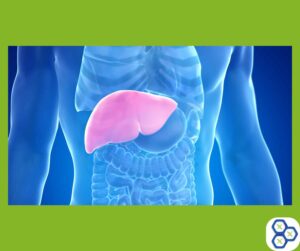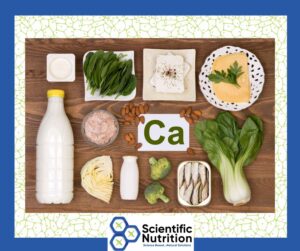What Are C15 Levels
Your C15 levels refer to the concentration of pentadecanoic acid (C15:0), a specific and unique type of saturated fatty acid, in your body. It is important for your heart and metabolic health. Healthy C15 levels enhance metabolism, better immunity, and reduced inflammation.
But which vitamins play a role in boosting these levels?
In this blog post, you’ll discover the essential vitamins that support your C15 and how they contribute to a healthier, more resilient body.
Why Do C15 Levels Matter
Research by PMC shows that pentadecanoic acid supports essential body functions. It supports metabolism, enhances immune response, and controls inflammation.
So, when your C15 amounts are balanced, your overall health is strong. On the other hand, low levels can lead to weakened immune defenses and may increase the risk of chronic inflammation. Optimized C15 levels are linked to multiple health benefits.
But how do Vitamins help you strengthen pentadecanoic acid?
Let’s get into it.
How Vitamins Play a Role in Improving C15 Levels
Vitamins play a vital role as helpers in the body’s chemical reactions, which keep the right levels of C15—a fatty acid important for your health—balanced and functioning properly.
C15 requires a stable cellular environment, it is a type of healthy fatty acid linked to metabolic health. It supports how your body processes energy and nutrients. It needs a healthy and balanced environment within your cells to work effectively. Vitamins help create and maintain that environment.
Think of vitamins as “helpers” that make sure important tasks in your body get done smoothly. These tasks include creating energy, controlling how fats are used and stored, and reducing inflammation—all of which are closely linked to the function of C15 fatty acids in your body.
For instance, B vitamins help enzymes turn food into energy that your body can use. B vitamins act as co-factors for enzymes involved in breaking down carbohydrates, fats, and proteins.
This energy is crucial for keeping your cells healthy, which also helps maintain proper levels of C15. The functions of B vitamins and C15 are interlinked in a way that supports and sustains overall cellular and metabolic health,
Similarly, vitamins with antioxidant properties—such as Vitamin E—protect cells from oxidative damage.
So which vitamins specifically improve C15 levels? Keep reading…
Top 3 Vitamins for Improving C15 Levels
Vitamin B12
Vitamin B12 is crucial for red blood cell formation and energy production, two processes that indirectly support C15 levels.
B12 makes sure that oxygen and nutrients reach all body cells efficiently. It aids in the development of healthy blood cells, including those that influence C15. This energy boost from B12 helps sustain cellular functions, creating an environment where C15 can work effectively.
Recommended B12 Dosage: For adults, the daily intake is about 2.4 micrograms.
Sources: Found primarily in animal-based foods like meat, dairy, fish, and fortified cereals.
Vitamin D
Vitamin D is known for its role in calcium regulation and is crucial for fat metabolism—a factor that may influence the bioavailability of C15 in the body. The “sunshine vitamin” supports the cellular environment needed for C15 levels to remain stable. It assists in fat absorption and mobilization.
This vitamin’s effect on immune cells complements C15’s role in managing inflammation.
Recommended Dosage: Typically 600-800 IU daily per RDA but I have clients 16 years and older on 5,000 I.U. daily.
Sources: Rich sources include salmon, eggs, fortified dairy, and exposure to sunlight.
Vitamin E
Vitamin E’s antioxidant properties are fundamental in protecting cells from oxidative damage, which can otherwise destabilize C15 levels. This powerful vitamin helps cells remain healthy. It neutralizes free radicals and reinforces C15’s benefits for cellular resilience and inflammation control.
Free radicals are unstable molecules that can damage cells, proteins, and DNA, contributing to aging and various diseases. They cause Oxidative stress when there is an imbalance between free radicals and the body’s ability to neutralize them with antioxidants (found in fruits and vegetables).
Recommended Dosage: About 15 mg per day for adults.
Sources: Nuts, seeds, and leafy greens such as spinach and kale.
Now you know which vitamins to choose to improve C15 levels. But what if you want more natural solutions?
Other Ways to Naturally Boost C15 Levels
Healthy fat intake
A diet rich in healthy fats, particularly omega-3s, can support the body’s natural production of C15. Omega-3 fatty acids found in foods like salmon, chia seeds, and walnuts help balance inflammation, improve cellular function, and create an environment where C15 levels can thrive.
Including a variety of healthy fats in your diet helps maintain C15 while supporting overall health.
Regular physical activity
Exercise plays a significant role in optimizing cellular health, which indirectly aids in sustaining healthy C15 amounts. Physical activity improves blood flow, nutrient delivery, and metabolism and allows cells to function efficiently.
Engaging in activities like brisk walking, cycling, or strength training for at least 150 minutes per week can boost your body’s ability to maintain the balance of your C15 fatty acids.
Lifestyle tips for long-term C15 maintenance
To maintain optimal C15 levels, focus on balanced nutrition, manage stress effectively, and prioritize regular health check-ups. Chronic stress and poor dietary habits can disrupt cellular health and highly impact C15 amounts.
Adopting mindful practices, such as meditation and sleep hygiene, can further help sustain your body’s natural balance, ensuring these levels remain stable over time.
Hair Analysis and Your Path to Optimal C15 Levels
You can’t achieve the C15 level by implementing a single solution. You need to take care of your lifestyle, diet, and nutrient intake. Focusing on specific vitamins, exercise, and healthy fats can help build the foundation for cellular health and resilience.
If you are confused and stuck, LET’s CHAT, and we will discuss your health goals on a complimentary health consultation.
Hair Mineral Analysis is a powerful first step toward understanding exactly what your body needs to reach ideal C15 levels and sustain your long-term health.
Copyright Scientific Nutrition, LLC 2024




